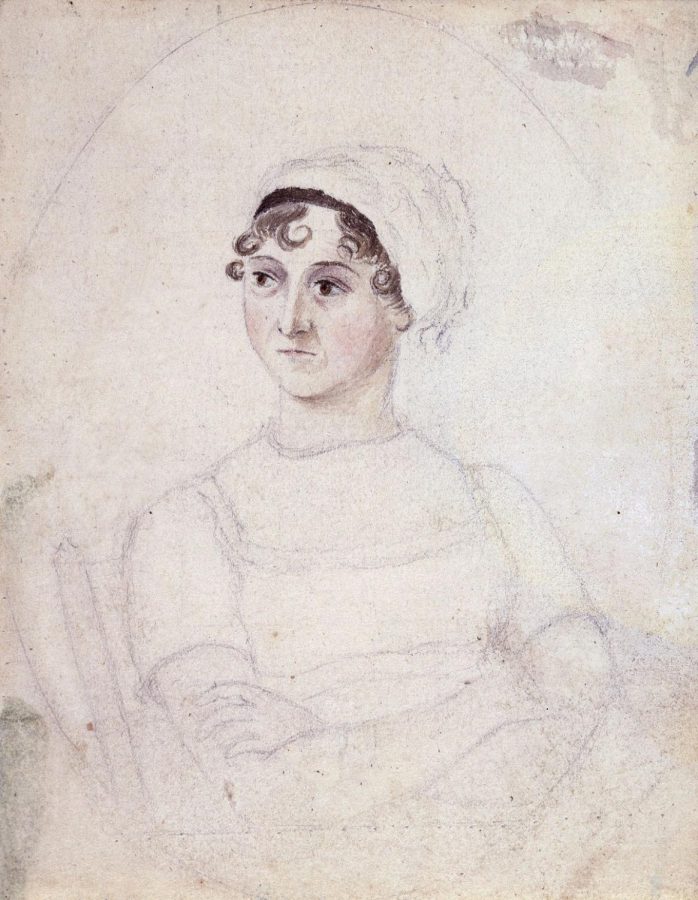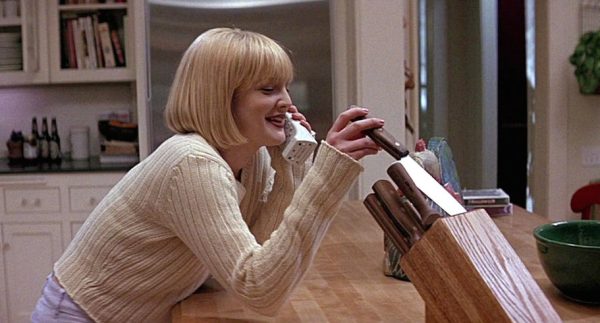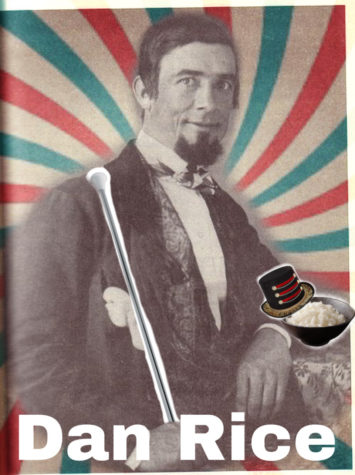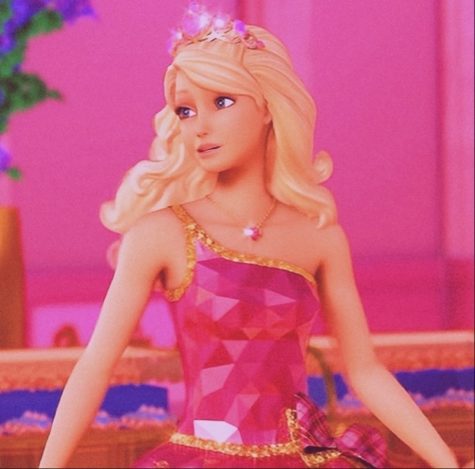Luck of the Draw: Jane Austen and Women Writers
Jane Austen, along with other female writers, is lauded as a genius. Is her success truly her own?
In the modern day, there are hundreds of famous female writers. From Tony Morrison to Virginia Woolf, women are read in schools, examined in research papers, and lauded as spectacular creative voices. In fact, writing is sometimes cast as a uniquely female exercise. Perhaps it’s the ubiquitous idea that women are more “emotional” and, thus, are better at writing emotional works. Whatever the reason, I often find myself in writing spaces that contain mostly female classmates. It’s a curious thing. Especially when history has often been the opposite.
For a long time, there’s been a large disparity between female and male authors. Historical women were often kept from reading and writing. They weren’t allowed to attend school and were unable to learn skills that were unrelated to being a wife or mother. Thus, the “classic” works of English literature are very white and very male. One list of the “top 100 books of all time” includes 20 books by women. A list of 50 includes only 8.
The female authors that do show up on these lists are instantly recognizable. They’re the likes of Mary Shelley and her science fiction masterpiece, or George Eliot and Middlemarch. It’s easy to laud these authors, not only for their brilliance, but for their bravery in breaking the status quo. Surely they must be even more skilled than their male contemporaries, in order to fight against the patriarchy?
Well, yes and no. They’re certainly talented writers. But the truth, and the intersection of skill and opportunity, is far more complex. To illustrate, I’ll shine a spotlight on one of those skilled female writers—Jane Austen, author of Pride and Prejudice.
Born in 1775 to a large English family, Austen only had a year of formal schooling. She began writing at a very young age and honed her skills throughout her teenage years. She had a knack for beautiful writing, realistic characters, and female-centric narratives. In 1811, she published her first novel, Sense and Sensibility. She published six more novels—two after her death—and all became famous in their own right. She died in 1817.
That’s the simplest version of her story. Perhaps it’s even the version that portrays her as if she were a male author. There is no context for her life and no dwelling on the injustices she faced. After all, a male author needs no context for his life story. It is always assumed that he had the opportunities he needed for success. For a woman, it’s a different story entirely. Successful women are the exception, not the norm. Thus, many stories of Austen’s life take a different approach.
Jane Austen was born in 1775, a member of a lower-class English family. She was not permitted to attend school, but she read voraciously and began crafting her own stories. Her first works were mostly satirical—she enjoyed mocking and deconstructing the world she saw around her. One teenage story is an abridged version of a historical textbook. She centered women in her stories from a young age, and as she grew as a writer, she continued to write stories told by women.
Her stories perfectly capture the essence of hyper-polite Georgian England, and Austen used her works for social commentary, subtly snarking at class and gender divides. All six of her published novels have a female heroine. Pride and Prejudice, perhaps her most famous, features a protagonist who turns down several proposals and eventually marries for love. In Austen’s world, this was a controversial narrative that defied the popular ideas of womanhood.
She did much the same thing in her own life. She never married, dedicating much of her life to writing. But her only published novels were between 1811 and 1816, the five years before her death. She published all her novels anonymously. The title page identified her as “A Lady.” Only after her death, at age 41, did her brother reveal her identity to the world.
Here, in this more detailed narrative, Austen’s brilliance takes center stage. She defied the social norms of her time, was a naturally gifted writer, and died tragically before she could continue her writing. This is the classic story of feminist empowerment—a woman who, despite all the odds, created success for herself. She was a genius. She was a self-made woman.
Except, if we look through a male lens, that narrative would never fly. No male author is “self-made,” despite any claims to the contrary. They are products of their environment. Perhaps they went to Harvard, or had generous support from their parents. Calling any male author “self-made” would erase the historical context for their success. So why do people feel more confident in doing the same to women?
Perhaps it’s because, at first, women don’t seem to have historical context for their success. They’re obviously victims of a patriarchal world that suffocates their individuality. “Self-made” women had no allies around them. Meanwhile, “self-made” men had an entire society at their backs. If women authors were the exception to the rule, it seems reasonable that they succeeded entirely by their own merit.
However, even if women fought their hardest against the patriarchy, they could not succeed unless the patriarchy failed. They could not succeed unless the patriarchy allowed them to do so. A woman cannot publish a novel without publishers agreeing, and she cannot learn to write without someone giving her the tools to teach her, and she cannot become popular without reviewers praising her. And throughout history, those roles would be filled by men.
This is not to say that female authors were not bold geniuses who paved their way to fame. They absolutely were. But it’s important to understand the context of their success, since fame requires opportunity, and opportunity depends on chance. Many of these authors were shaped by their experiences, just as male authors were. The patriarchy serves men by default. In history, women succeeded when the patriarchy served them, too.
Jane Austen was born in 1775. She was part of a lower-class English family, with several brothers. Her father was a priest and possessed a large library. He also taught schoolboys inside the Austen home. It’s believed that a young Austen probably read her father’s books and eavesdropped on those lessons. Their family enjoyed reading aloud to each other, and Austen shared many of her first stories with them. Austen’s family—especially her sister, Cassandra—supported her throughout her life.
In 1797, Austen’s father sent a bumbling query letter to a publisher, recommending the first draft of what would become Pride and Prejudice. Nothing came of that letter, but he continued to support Austen’s writing. During the period that she wrote her most famous novels, she lived in a cottage owned by her brother. When she passed away, her brother Henry revealed her identity in a biographical notice and posthumously published her final two novels.
Jane Austen was a literary genius. She also owed many of her opportunities to the tireless support of her family, especially her brothers and father. If it hadn’t been for her father’s library or her brother’s biography, she may have died in anonymity, or never written at all.
It can be difficult, when looking at the tumultuous life of female authors, to find any sort of privilege. Privilege is perhaps the wrong word to use—luck would be the better term. For every famous person is lucky in their own way. They were lucky to have a supportive family, or lucky to attend a good college, or lucky to be noticed for their talent. It’s the same with female novelists throughout history. They succeeded because they were lucky—because of the impact of the men around them.
That’s not a sentiment that feels pleasant to hear. We want to believe that women succeeded due to their own merit. Not only does it bolster their own greatness, but it allows us to believe that we could be a similar exception. All the women around them just didn’t try hard enough or weren’t geniuses on the level of Bronte and Woolf. The only necessary ingredient for success, for empowerment, is grit.
And perhaps today, in some areas, that is true. Feminism has come a long way from Georgian England. Resources are widely available to many, education is freely offered, and women are so ubiquitous as writers that I can find it rare to see men in a writing class. But it hasn’t always been that way. The lack of women in classic literature tells that tale well enough. How can we believe that oppression created this lack of diversity, but not acknowledge the role that oppression plays in those who break away?
Perhaps it sounds like doing those women a disservice. Attributing all their success to men strips them of their own value, and places them right back in a patriarchal box. Or does it? Two ideas can exist at the same time. We can praise these authors for their beautiful writing and stellar works, but we can still acknowledge how lucky they were to write those works. How lucky, I might add, we are to read them.
Geniuses like Austen don’t appear in every household. But they must appear in some. How many like-minded writers have existed throughout history? How many were denied opportunities, forced into obscurity, or simply unlucky? How many works like Pride and Prejudice have we been denied, and what could our literature landscape look like if we weren’t? Would a list of fifty books have twenty-five by women?
Acknowledging historical context isn’t erasing any woman’s struggle or genius. It simply puts that struggle into a new perspective. Instead of painting oppression as a video game boss to defeat, it shows the true complexity of societal discrimination. If we look around Jane Austen, we don’t only see a bold genius ahead of her time. We see a support network of men who not only defied the patriarchy, but used their societal power to encourage and uplift her.
That is the very definition of utilizing privilege for others’ benefit. Society places many people in positions of power and will continue to for a long time. We still struggle with discrimination and systems of power that are difficult to dismantle. If we cast victims who break free as “geniuses” or “self-made people,” we ignore the fundamental responsibility of all those who benefit from the system. We cannot rely on the oppressed to succeed of their own accord. We must acknowledge, understand, and utilize the power that gives them that chance.
Mary Shelley, the author of Frankenstein, is credited as the “mother of science fiction.” Yet, her original book—written at age eighteen—was heavily revised by her husband, Percy Shelley. Copies of the first draft still exist, with Percy’s handwriting scrawled in the margins. He was a known poet himself, but it’s generally agreed that his suggestions were lackluster. Frankenstein was published with those edits regardless. A story by a woman, pared and revised by a man.
For even the success stories are marred with loss. Even those who were lucky, who took advantage of opportunities, were stifled by the world around them. These historical worlds were complex. Power and luck were a double-edged sword. We have Mary Shelley’s book to read, but we don’t know what it may have originally contained. We have six beautiful novels by Jane Austen, but we don’t know what she could have written if she had more education, more support, or more of a platform.
Perhaps it’s useless to dwell on hypotheticals. The fact remains, however, that everything we read is shaped by its historical context. Every book has a reason for being published. Every author is molded by the world around them. That’s almost unavoidable. As people, we evolve to reflect our environment. For female authors, that often meant putting aside their quills and closing their books.
It can be argued that we’ve come a long way from Georgian England. Yet similar power structures still affect the lives of authors, and people, today. It’s irresponsible to ignore the intersection of personal merit and societal pressure, or the luck that opportunities rely on. History is the same. The past is complicated and intertwined, so telling one version of a story always leaves out another. People succeed despite their obstacles. People also succeed because of their obstacles, or because of the obstacles they were lucky enough to avoid.
It’s impossible to know what our libraries would look like if everyone got a chance to tell their own story. But we can work to eliminate that doubt in the future. Women writers are more common and celebrated, but they still struggle for recognition. Other writers have similar challenges—writers of color, disabled writers, queer writers, and more. Systems of power are very much alive. If we don’t work to understand and dismantle them, we could lose more wonderful writers.
And despite everything I’ve written, I’m still inspired by Jane Austen’s story. I’m inspired by all the women writers who paved their own way. They were geniuses and visionaries. They impact our world today. They took advantage of their opportunities. It may not be fully honest to say that they defeated the patriarchy on their own. But in a world that didn’t believe in their worth, they proved that some people are willing to help. Privilege can be used for good. The system is not a monolith.
Most of all, they prove that there is hope. Some writers were able to succeed. We may only have eight names on a list of fifty, but that’s still eight stories that managed to be told. If we understand how and why those stories survived, we can work to encourage those scenarios. Success can be luck of the draw. But luck can be improved.
One day, hopefully, everyone will have the opportunities they need. Success won’t be the exception. For now, we can make one choice at a time. If we open one door at a time, slowly, more people will be able to walk through. We’ll reach a world where we don’t need to wonder what could have been. We’ll have every story right in front of us, exactly how they were meant to be read.

Avery Yoder-Wells is a sophomore at Carver Center for the Arts, where they are a literary arts student. Besides writing, they sing in a treble choir and...











Eric • Aug 3, 2022 at 10:22 pm
So awesome to read your writing again. Never read anything of yours that wasn’t brilliant. I look forward to much more.